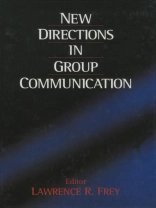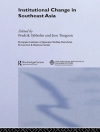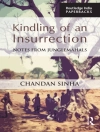New Directions in Group Communication takes as its mission the setting of the agenda for the study of group communication in the future. It does so by presenting work that scholars have not previously explored in the current small group communication literature. Part I focuses on new theoretical and conceptual directions, both presenting new views and extending current positions. Part II examines new research methodologies, while Part III looks at antecedent factors affecting group communication. Parts IV and V of the text provide insight into both group communication process and practices. Part VI covers different group communication contexts, including communication patterns in top management teams.
An excellent companion to The Handbook of Group Communication Theory and Research, this volume sets the direction for future study for students and scholars alike.
Table des matières
Introduction: New Directions in Group Communication – L. R. Frey
PART I: THEORETICAL PERSPECTIVES
1. New Directions for Functional, Symbolic Convergence, Structuration, and Bona Fide Group Perspectives of Group Communication – J. H. Waldeck & et al
2. ‘Being a Part and Apart’: Dialectics and Group Communication – S. D. Johnson & L. Long
3. Foregrounding Feminist Theory in Group Communication Research – N. Wyatt
PART II: METHODOLOGICAL PROCEDURES
4. The Group Dynamics Q-Sort in Group Communication Research – R. S. Peterson
5. Ethnographic Practices in Group Communication Research – N. J. Dollar & G. Merrigan
PART III: ANTECEDENT FACTORS AFFECTING GROUP COMMUNICATION
6. The State of Traits: Exploring Group Communication Predispositions – J. Keyton & L. R. Frey
7. The Effects of Culture and Cultural Diversity on Communication in Work Groups: Synthesizing Vertical and Cultural Differences With a Face-Negotiation Perspective – J. G. Oetzel
PART IV: GROUP COMMUNICATION PROCESSES
8. Rethinking Traditional Approaches to Argument in Groups – R. A. Meyers & D. E. Brashers
9. Enlarging the Meaning of Group Deliberation: From Discussion to Dialogue – J. K. Barge
Self-organizing and Complexity Perspectives of Group Creativity: Implications for Group Communication – A.J. Salazar
PART V: GROUP COMMUNICATION PRACTICES: FACILITATION AND PEDAGOGY
10. Getting to ‘Group Aha!’: Provoking Creative Processes in Task Groups – Sunwolf
12. Exploring Consequences of Group Communication in the Classroom: Unraveling Relational Learning – T. H. Allen & T. G. Plax
PART VI: GROUP COMMUNICATION CONTEXTS
13. A Bona Fide Perspective for the Future of Groups: Understanding Collaborating Groups – C. Stohl and K. Walker
14. Communication in Top-Management Groups – T. E. Zorn and G. H. Tompson
15. Cross-National Group Communication Research: Prospects and Promise – R. Shuter
16. Group Communication and Technology: Rethinking the Role of Communication Modality in Group Work and Performance – E. A. Mabry
Author Index
Subject Index
About the Editor
About the Authors
A propos de l’auteur
Lawrence (Larry) R. Frey is a Professor in the Department of Communication at the University of Colorado at Boulder. His teaching and research interests include group interaction, applied communication (communication activism, communication and social justice, communication and community studies, and health communication), and communication research methods (both quantitative and qualitative). His research seeks to understand how participation (especially by those who are underresourced and marginalized) in collective communicative practices makes a difference in people’s individual, relational, and collective lives. He received a B.S. from Northwestern University and an M.A. and Ph.D. from the University of Kansas. Prior to coming to the University of Colorado at Boulder, he served as department chair at The University of Memphis and as a faculty member at Loyola University Chicago and at Wayne State University. He is the author/editor of 14 books, 3 special journal issues, and more than 60 published book chapters and journal articles. He is the recipient of 11 distinguished scholarship awards, including the 2000 Gerald M. Phillips Award for Distinguished Applied Communication Scholarship from the National Communication Association (NCA); the 2004, 2003, and 2000 Ernest Bormann Research Award from NCA’s Group Communication Division, for, respectively, the edited texts, Group Communication in Context: Studies of Bona Fide Groups (2nd ed.), New Directions in Group Communication, and The Handbook of Group Communication Theory and Research (coedited with Dennis S. Gouran and Marshall Scott Poole); a 1999 Special Recognition Award from NCA’s Applied Communication Division for an edited special issue of the Journal of Applied Communication Research on “Communication and Social Justice Research”; the 1998 National Jesuit Book Award (Professional Studies Category) and the 1988 Distinguished Book Award from NCA’s Applied Communication Division for his coauthored text (with Mara B. Adelman), The Fragile Community: Living Together With AIDS; and the 1995 Gerald R. Miller Award from NCA’s Interpersonal and Small Group Interaction Division and the 1994 Distinguished Book Award from NCA’s Applied Communication Division for his edited text, Group Communication in Context: Studies of Natural Groups. He is a past president of the Central States Communication Association and a recipient of the Outstanding Young Teacher Award from that organization, as well as a 2003 Master Teacher Award from the Communication and Instruction Interest Group of the Western States Communication Association.












